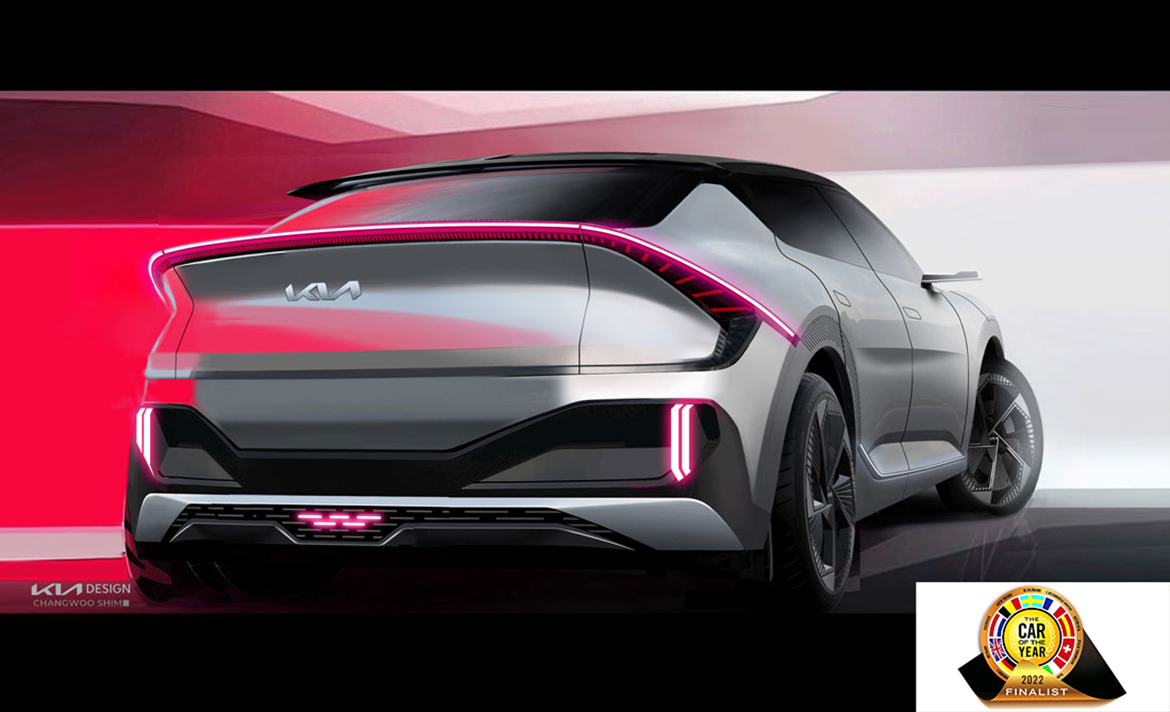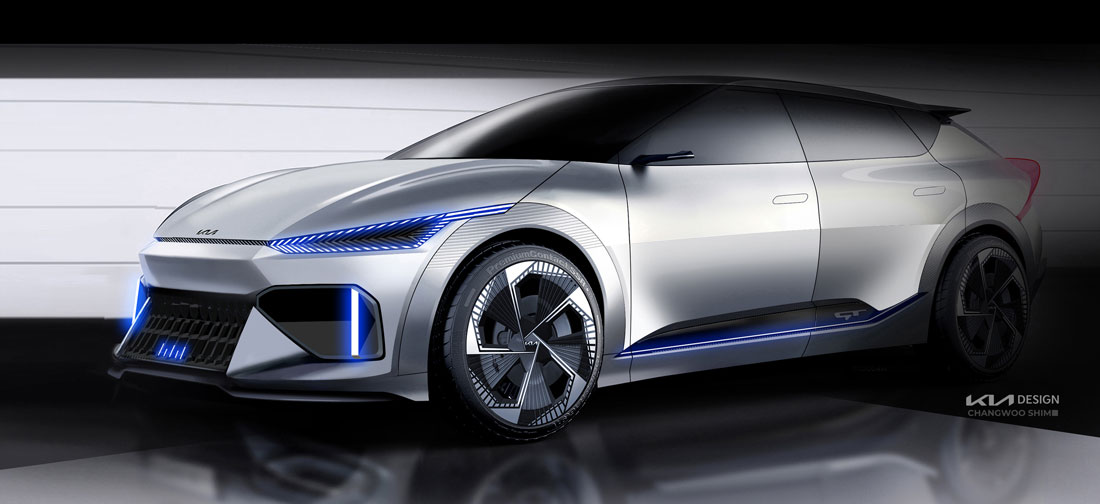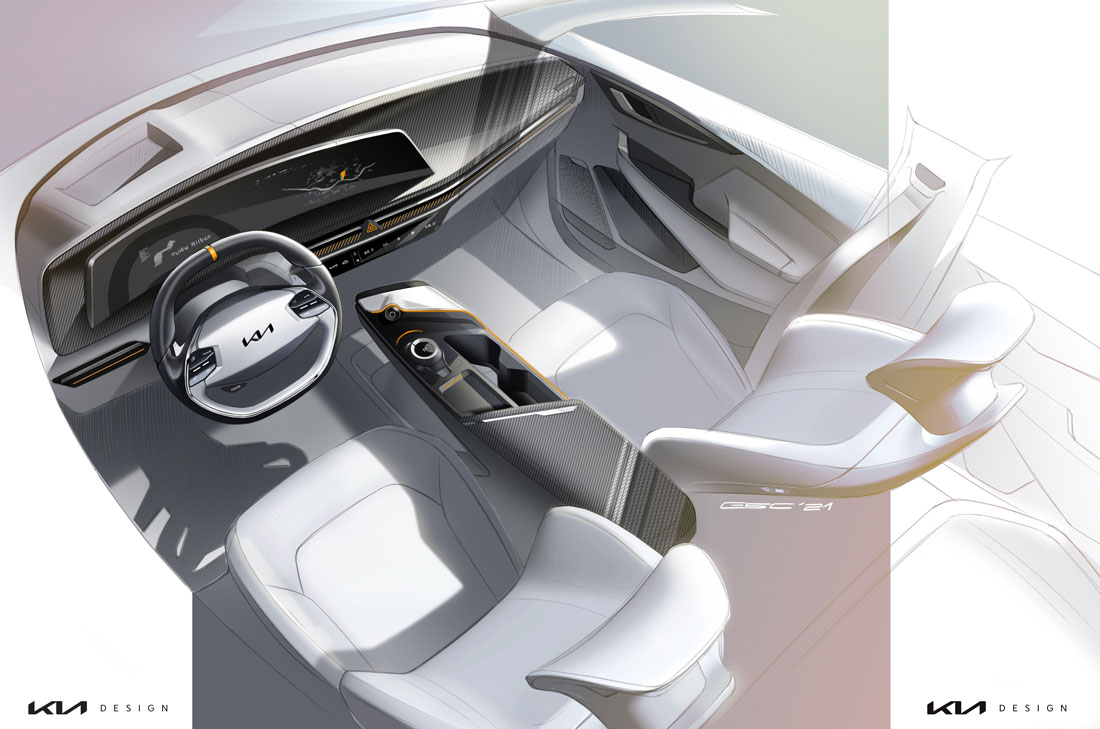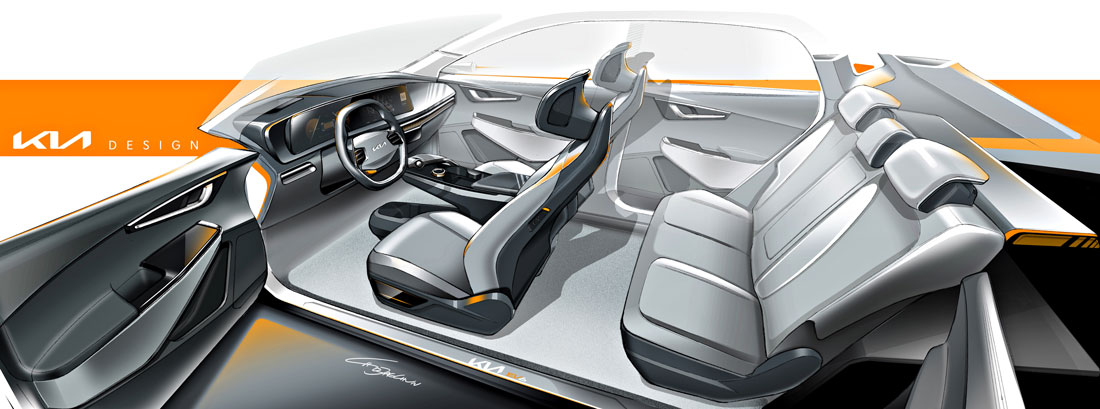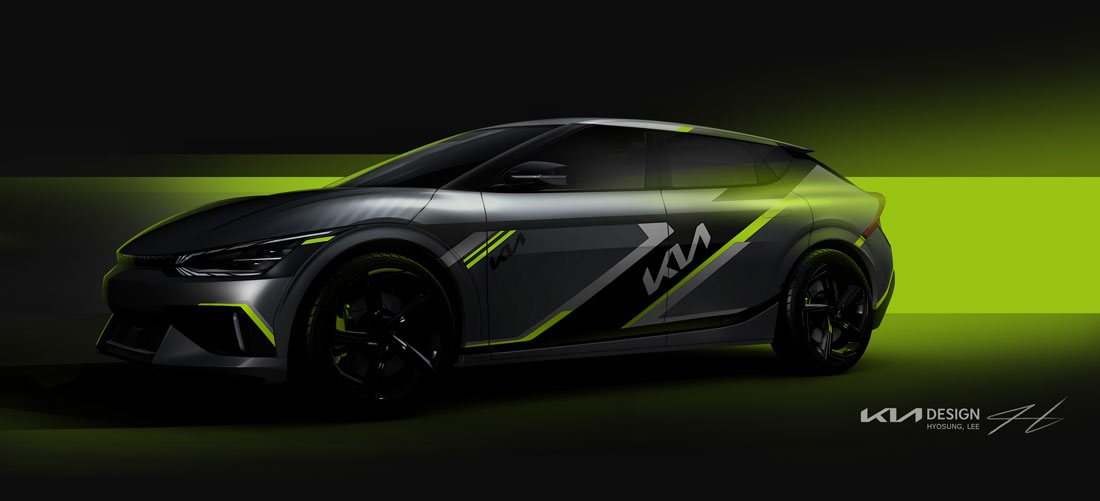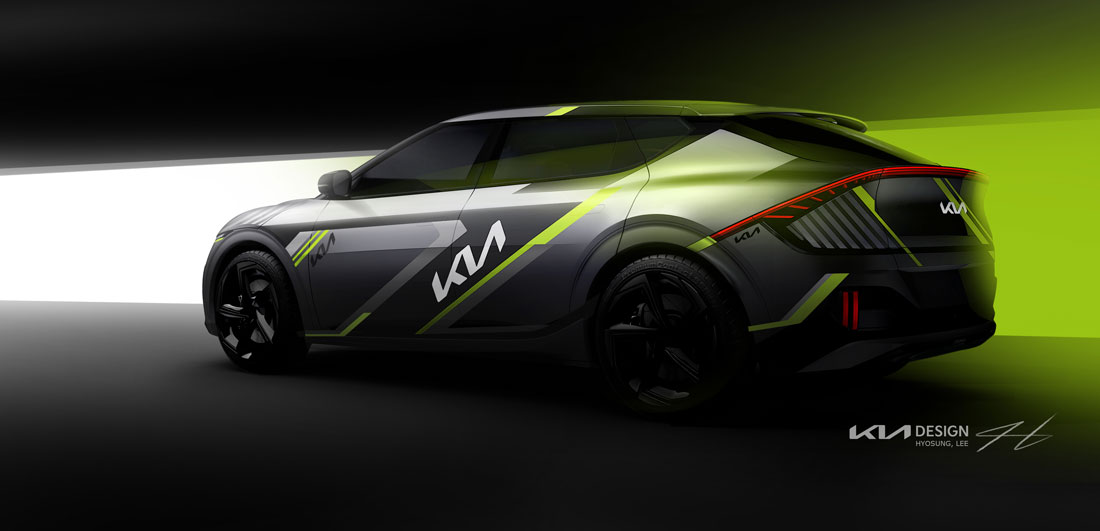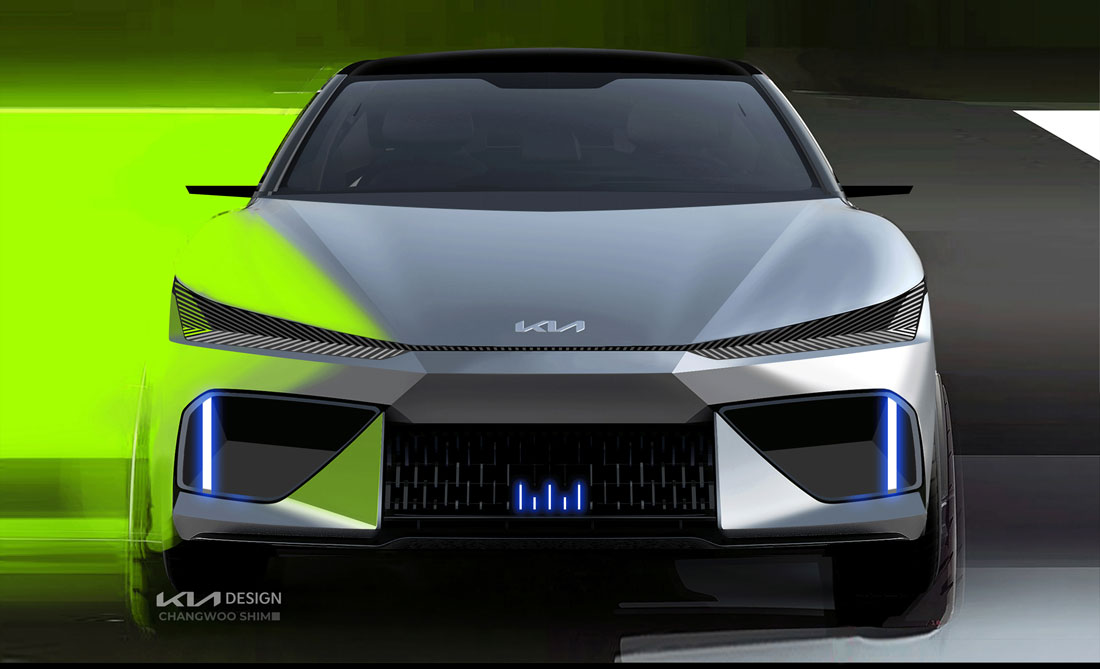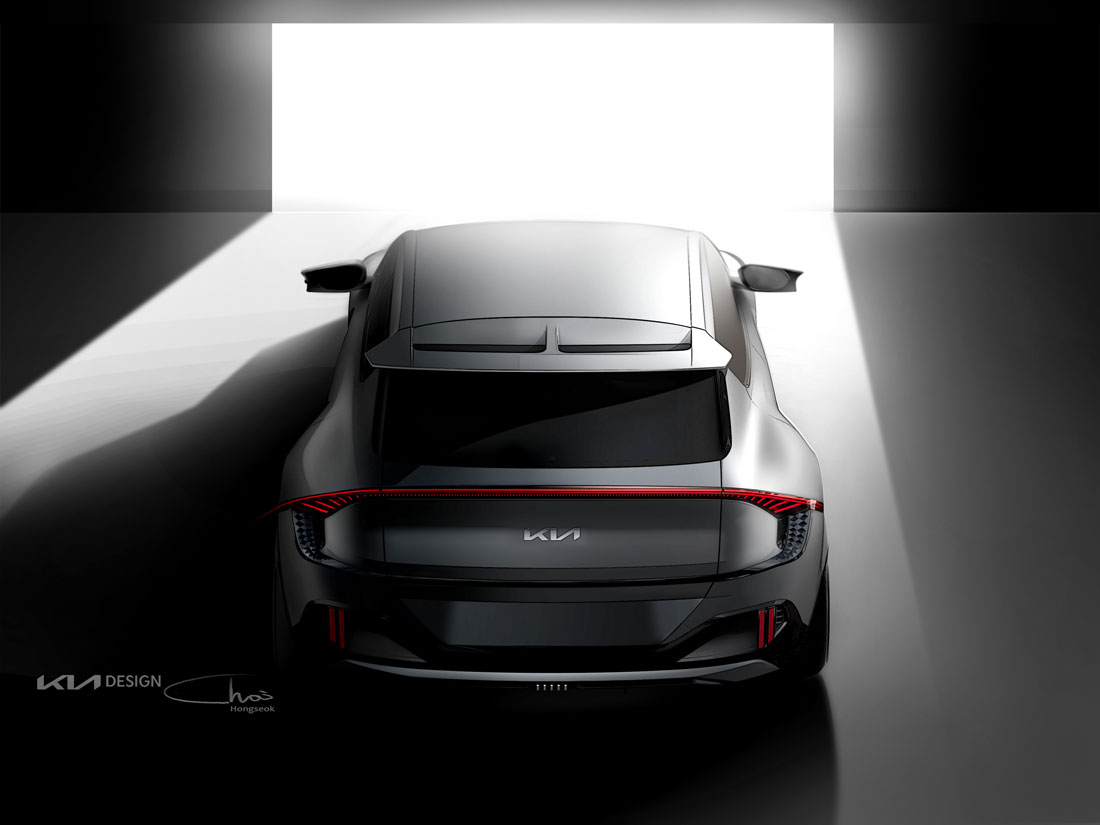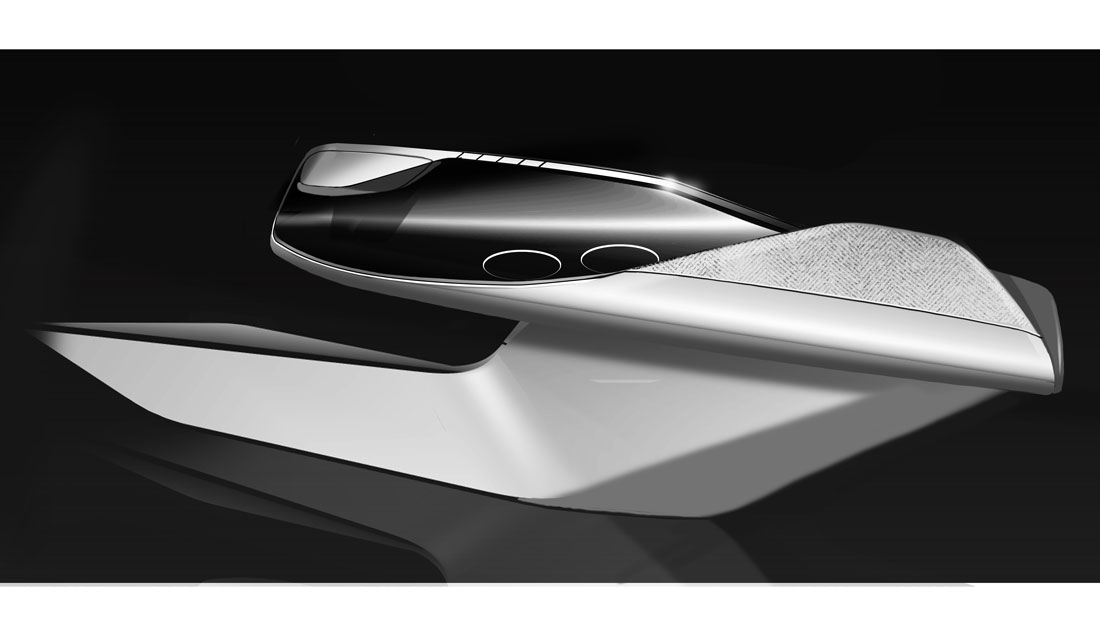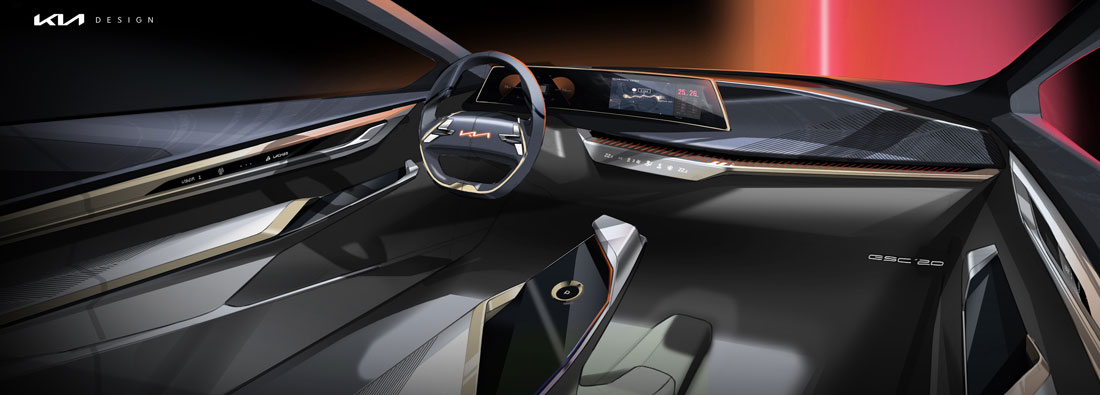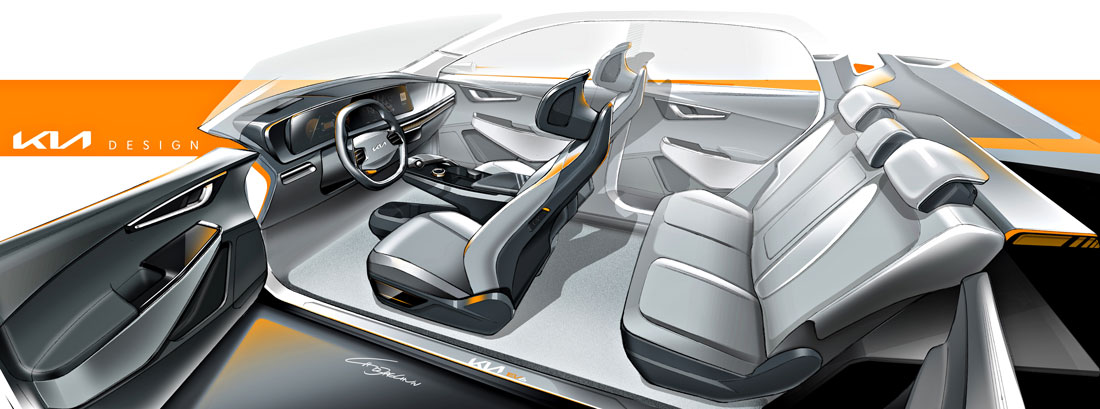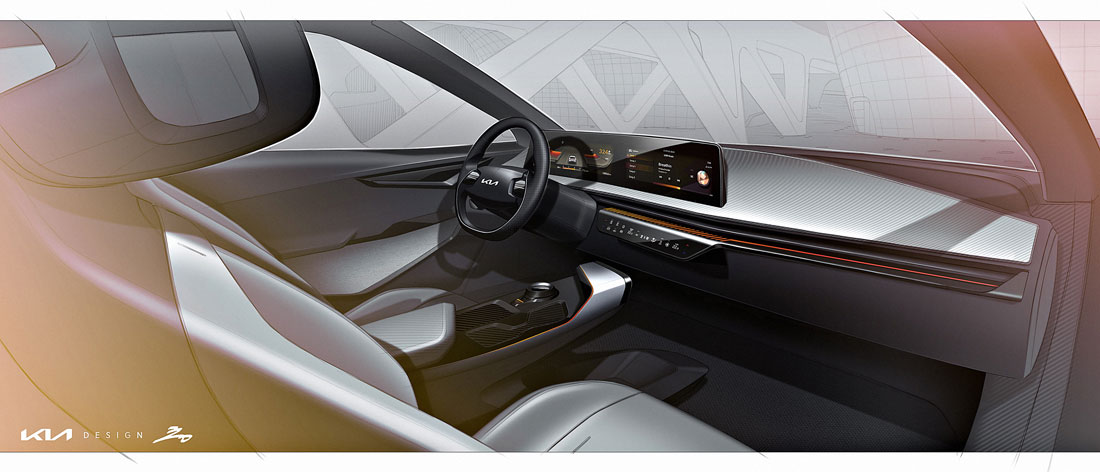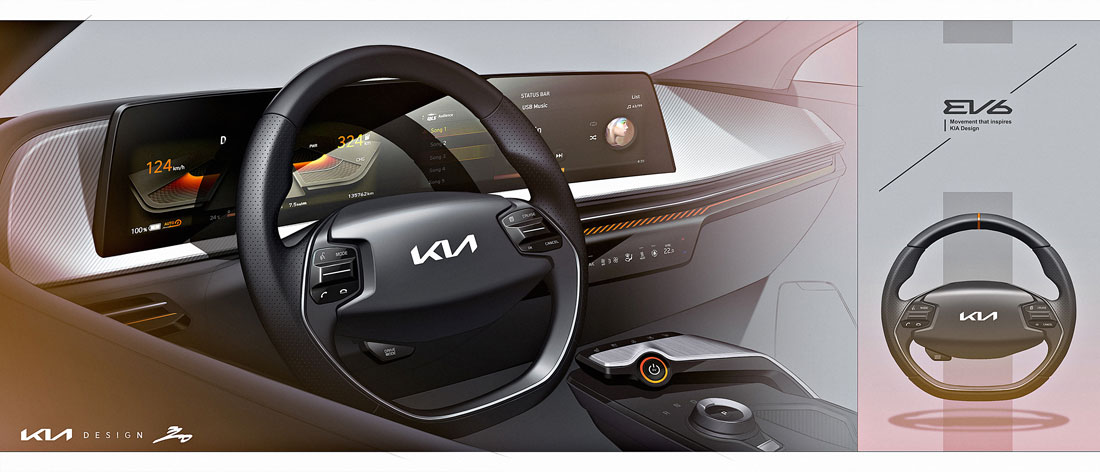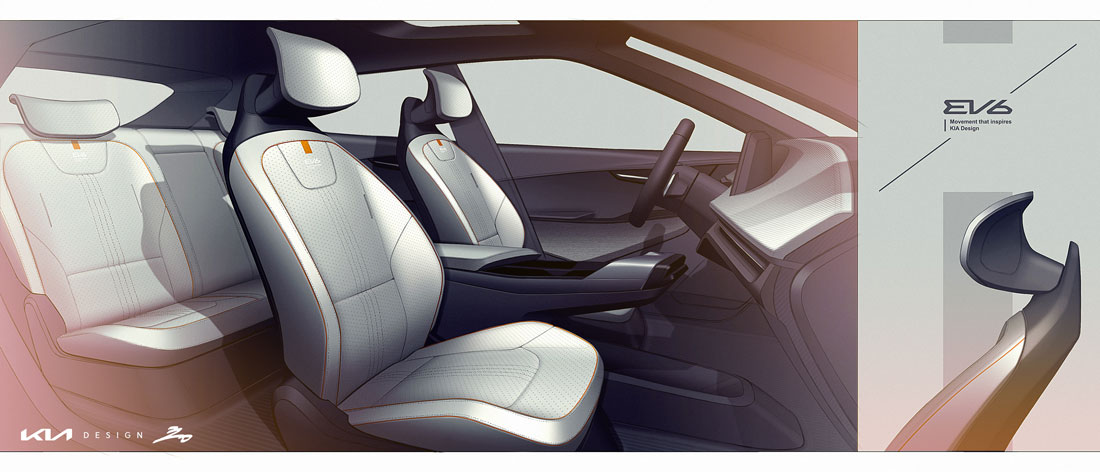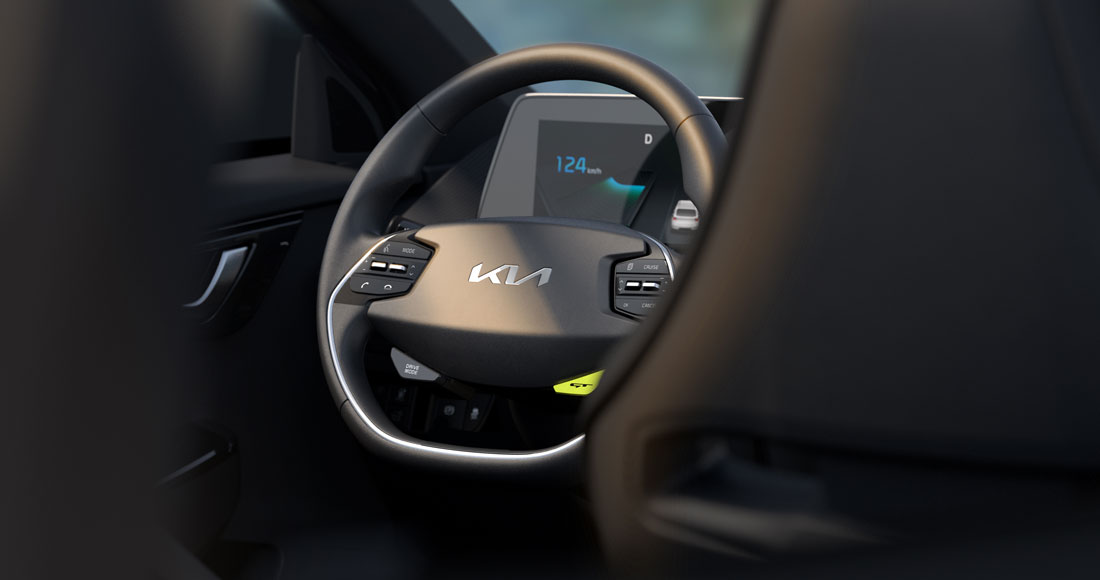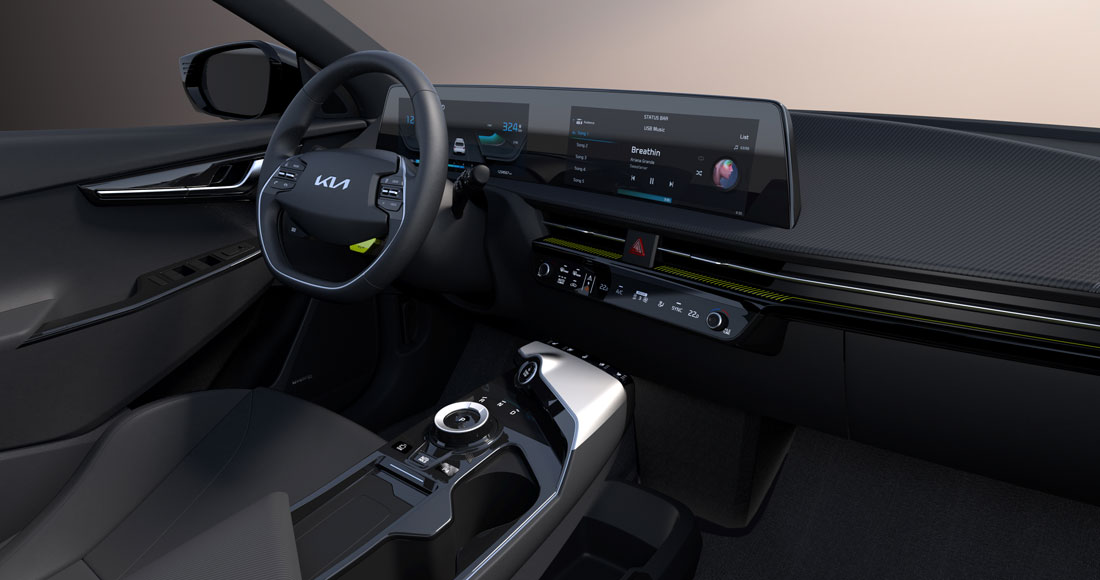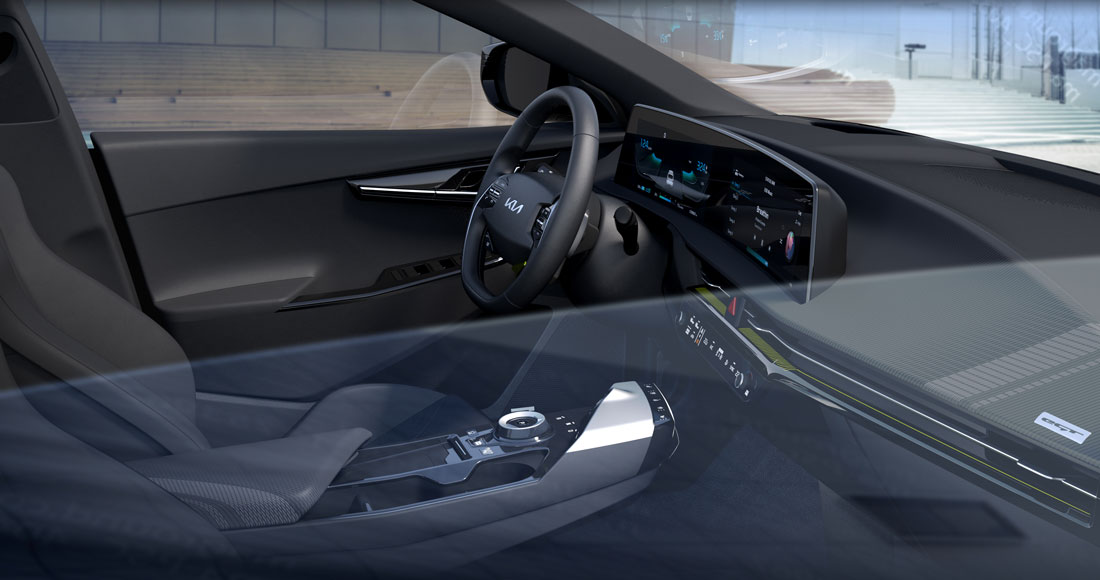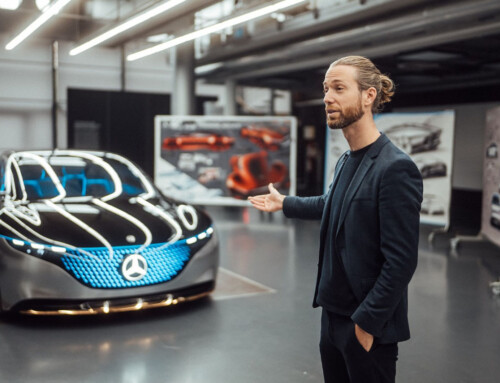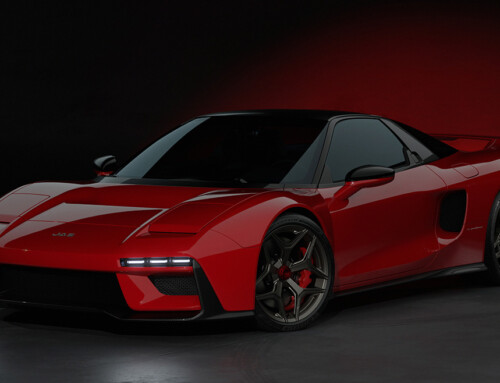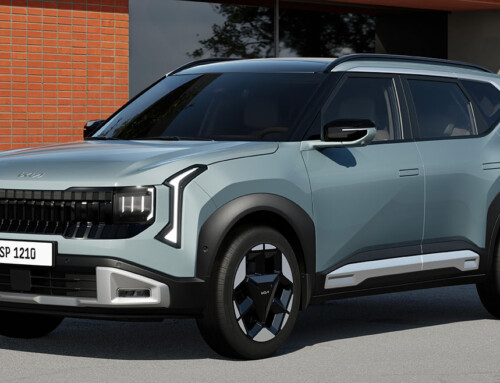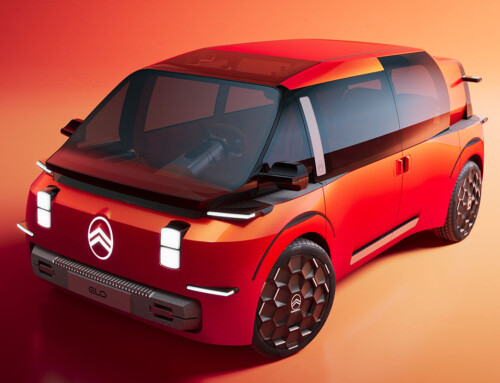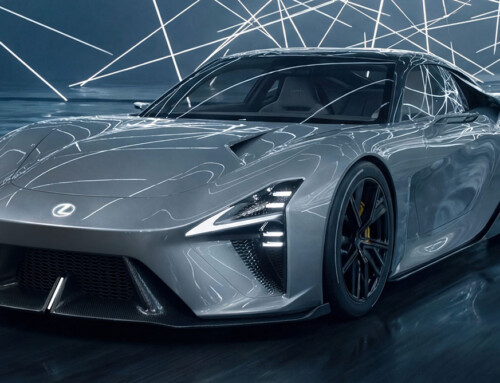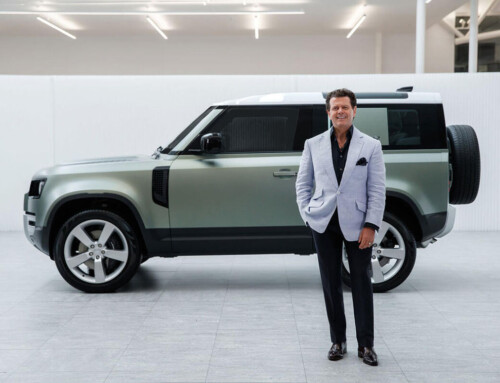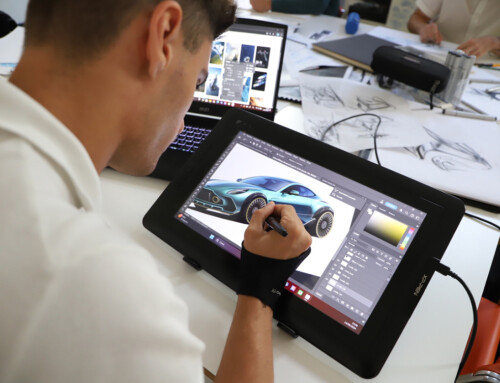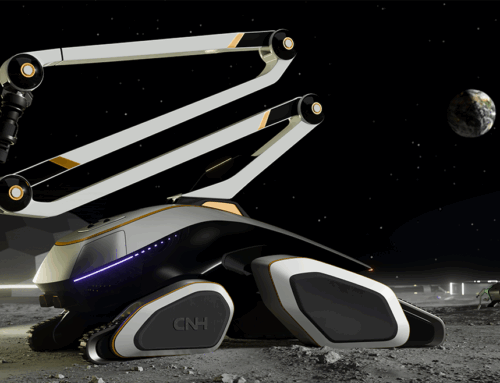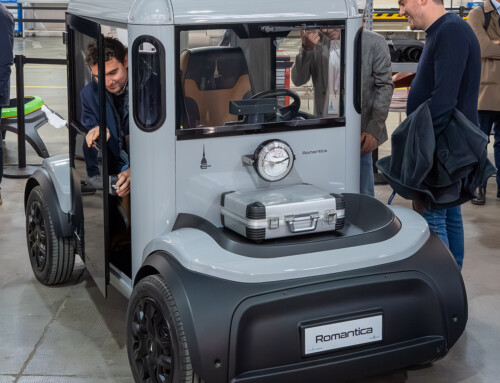CONTRASTING ELEMENTS
The Kia EV6 has been named Car of the Year 2022. The car won first place in the prestigious international award with 279 points totaled. In second place was the Renault Mègane E-Tech with 265 points, third position for the Hyundai Ioniq 5 with 261, fourth was the Peugeot 308 (191), followed by the Skoda Enyaq iV (185), Ford Mustang Mach-E (150) and Cupra Born (144).
With the EV6, constructed on the E-GMP (Electric-Global Modular Platform) and Kia’s first totally electric car, the Korean brand’s designers succeeded in surprising with new and unexpected formal treatments. “In the EV6, there is the sportiness of a fastback, the stance of a compact hatch, and, perhaps, a little of the raw strength of a rally car too. The result was made possible by the great work done by the engineers on the new EV architecture: our task was, above all, that of understanding its full potential”, explains Karim Habib, Senior Vice President of Kia Design.
Focus on technology
Habib doesn’t hide the fact that when he arrived in Korea a year and half ago, to begin duty in his current role, which also sees him as Head of the Global Design Center, the EV6 project was already in the final stages. “I immediately saw a very strong focus on technology, with the desire to offer the customer something more evolved to increase the quality of life on board”.
Attractive contrasts
Thus, the Kia designers wanted to place the people – the driver as well as the passengers – at the centre of the project and to do so they defined a new design philosophy: Opposites United, inspired by the contrasts and the meeting of positive energies existing in nature. It’s a theme that, in turn, is divided into five essential pillars: Bold for Nature, Joy for Reason, Power to Progress, Technology for Life, and Tension for Serenity – according to a very Eastern approach that loves conceptual definitions.
The Digital Tiger Face
Everything materialised in a formal treatment that opens a new chapter in the history of Kia design. To begin with the front end, here the characteristic Tiger Nose evolves into the Digital Tiger Face in a design that includes the visuals of the headlights equipped with a dynamic, sequential lighting system.
The flying bridge
This new electric era identity is grafted on an aerodynamic car body with minimum overhangs and a long wheelbase (2.9 metres), a streamlined bonnet, and a roof that terminates in a spoiler: a sort of “flying bridge” due to the visual effect sustained by the shiny, black insert on the tail pillar.
Futuristic electric vehicle
The “electric” platform made it possible to liberate space in the passenger compartment, especially at the front where the air conditioning unit was moved forward. “Knowing how to make use of the extra space is essential in these projects”, observes Habib again. He likes the “seamless” approach to user experience a lot, one that is “worthy of a futuristic, electric vehicle”, with the wide, curved digital panel that integrates the two 12-inch screens, augmented reality in the head up display, and the Zero Gravity seats that distribute the pressure of the body across cushions.
(Full article in A&D no. 249)

